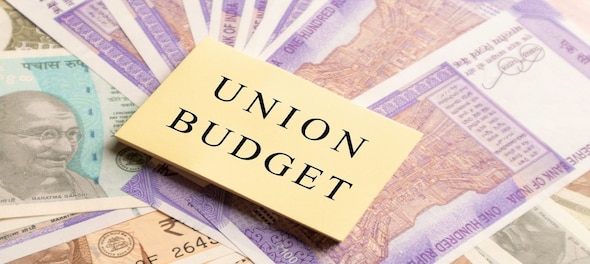
One of the key asks of taxpayers is that the government should ensure stability in tax and policy so that businesses have an environment of certainty to operate. With Budget 2022-23 on the anvil, this message is important to keep in mind for changemakers. Nonetheless, various stakeholders have been airing their expectations from the Budget, ranging from simplification of compliances, rationalisation of tax rates, expansion of incentives etc., from an indirect tax perspective.
Sectoral expectations
The government’s focus to promote domestic manufacturing in the telecom sector had led to an increase in customs duties on import of components, such as PCBA, system module, etc. Currently, the domestic manufacturing capability of these items is still in a nascent stage, prompting telecom equipment manufacturers to procure from foreign vendors and pay higher duties, which adds to the overall cost of the equipment. The industry has sought a reduction in customs duty in the next Budget with a gradual increase thereafter, to have a stable tariff structure and gradually enhance manufacturing capabilities.
Input tax credit (ITC) on telecom towers is specifically restricted under the GST law. Further, tax authorities are treating equipment mounted on telecom towers in similar parlance as telecom towers, denying ITC on such equipment. A clarification or amendment to the GST law on this issue would bring relief to telcos.
With rising cases of COVID-19 due to the Omicron variant, work from home (WFH) for IT / ITeS units operating from SEZ areas has been extended till June 30, 2022. These units have sought clarification from the government regarding guidelines on WFH on a long-term basis which would augment planning by IT / ITeS sector with respect to facility and other infrastructure requirements.
There has been a constant increase in prices of raw materials for manufacturing processes, which is adversely affecting the MSME sector. Last year, anti-dumping duty and countervailing duty on certain steel products were revoked. A similar call is being made by the MSME sector on engineering plastic and other inputs this year as well.
When the Remission of Duties and Taxes on Exported Products scheme was notified, several sectors were excluded from the incentive scheme. Steel, chemicals and the pharma industry have sought inclusion of their goods within its ambit to make them export competitive.
Healthcare services, which are exempt under GST, are unable to avail ITC of the goods and services procured by them, thereby adding to their overall cost. The government should either zero-rate or introduce GST at a nominal rate so that the healthcare industry can utilise ITC.
Post the pandemic, there is an increased interest in personal insurance policies. Currently, insurance premiums attract GST at 18 percent. The government could consider reducing the GST rate to make the insurance premiums more affordable.
The tourism sector, which was worst affected due to the COVID-19 pandemic, has sought zero-rating/exemption from GST on hospitality services provided to foreign nationals paying in foreign currency. Considering refund of GST paid on goods by foreign nationals on leaving India at international airports is in place, similar treatment from a GST perspective on hospitality services to foreign nationals would provide encouragement to the sector.
Key indirect tax amendments
The government could bring clarity on CSR spending where availability of ITC has been an issue. Indian companies spend 2 percent of their profits on CSR projects. A clarification that goods or services that are procured in the course of CSR activities are considered to have been incurred in the course or furtherance of business for claiming ITC, would help mitigate their costs.
To make India an R&D hub, the government should also consider exempting devices and accessories imported for testing or development purposes from customs duties. These are currently taxed at applicable rates. Since the goods are not meant for sale, exemption from customs duties shall encourage the industry to import such devices and accessories for undertaking R&D and testing in India.
The government saw good response to the “Vivaad Se Vishwas” scheme to reduce litigation in direct taxes. A similar scheme for customs would help reduce long standing litigations.
Currently, SEZ facilities are not being utilised to their optimum capacity. The Commerce Ministry is in talks with the Revenue Department to allow DTA manufacturing units to operate in SEZs. Changes to the SEZ law by allowing DTA units to operate in SEZ (without availing tax benefits) would contribute towards an increased economic activity from SEZs.
Though SEZ units are permitted to have domestic supplies, they are required to earn foreign exchange on such services provided to DTA customers. Hence, supplies to DTA clients by SEZs have not been undertaken and some SEZs are facing litigation. Allowing earnings in Indian currency from DTA customers will make the provision to make domestic supplies more effective.
Conclusion
Though India and the world have been coping with the pandemic, there is uncertainty on various fronts. Nonetheless, GST collections have been relatively buoyant and consistent of late. While furthering the motto of “Atmanirbhar Bharat”, proposals in the Budget should balance the expectations of industry while maintaining tax collections.
The author Saloni Roy is Partner at Deloitte India. Views expressed are personal.
(Edited by : Kanishka Sarkar)
Check out our in-depth Market Coverage, Business News & get real-time Stock Market Updates on CNBC-TV18. Also, Watch our channels CNBC-TV18, CNBC Awaaz and CNBC Bajar Live on-the-go!


Lok Sabha elections: 4th phase sees over 68% voter participation, West Bengal leads with 76% turnout
May 14, 2024 1:47 AM
Lok Sabha elections phase 4 witnesses around 63% voter turnout, experts weigh in on key contests
May 14, 2024 12:06 AM
Lok Sabha Election 2024: Shiv Sena UBT’s Arvind Sawant highlights Uddhav Thackeray's vision for Mumbai’s progress
May 13, 2024 9:21 PM
Exclusive interview: 'Southern states will be a big surprise,' says PM Modi
May 13, 2024 9:05 PM

